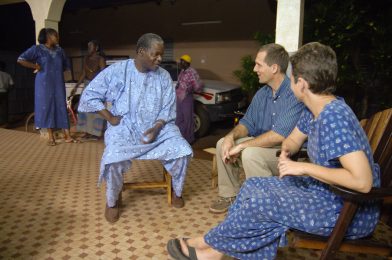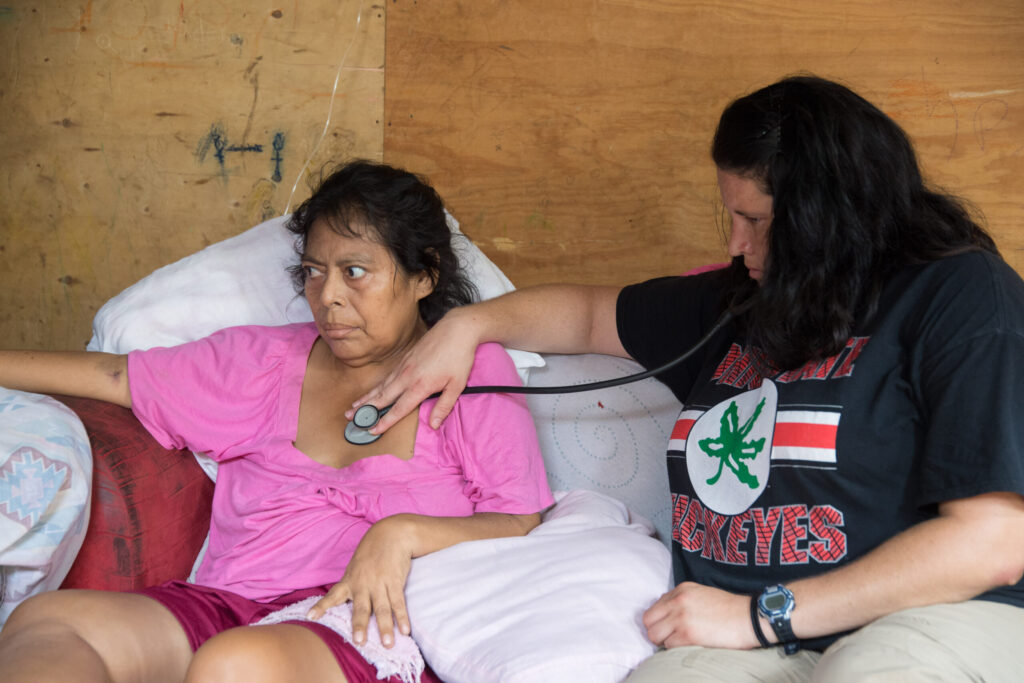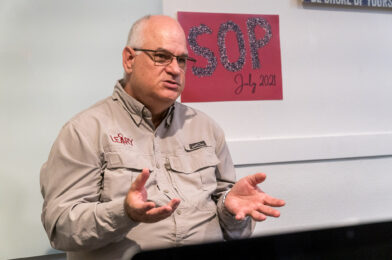Photo Caption: David and Tami Woods are beginning a new chapter in Bobo, Burkina Faso—and they’re not doing it alone. As they move into their new home, they were welcomed by homeowner M. Augustus Dembele (blue boubou) and supported by local friends who helped unload the truck: Karim Illa (brown boubou), Abraham Tankoano (checkered shirt), Colette Dembele (blue jean dress), and Ejemeba Dembele (brown top). This move isn’t just about a new house—it’s about building relationships and walking together in community.
Editorial Note Update:
After receiving thoughtful feedback, I want to clarify a distinction not fully expressed in the post. While the missionary I referenced still works where the Gospel is needed, the context matters: there’s a difference between serving in regions where 70% or more of the population already identifies as Christian and those where less than 2% have access to the message of Jesus. The latter often means people have little to no opportunity to hear and understand who Jesus is. That’s an important nuance in how we talk about missions—and why word choice does matter.
If you’ve been around faith-based nonprofits or international ministry work long enough, you’ve probably heard these words:
“I’m heading to Africa as a missionary.”
But here’s the thing: many countries people are “going to” today have more Christians and more active churches than the countries they’re coming from. Places like Nigeria, Kenya, and Ethiopia aren’t just “reached”—they send missionaries to Europe and North America.
So what happens when we continue to use outdated words like “missions” or “missionary”?
It sends the wrong message.
Even with good intentions, it can sound like we’re arriving to fix or lead—when the church is already thriving. These words can accidentally carry the baggage of colonial-era ministry: one-way help, top-down control, and a posture that doesn’t reflect today’s reality.
Our language needs to grow with our purpose.
Most of the global work happening now isn’t about proselytizing. It’s about partnership.
It’s about equipping, learning, building up, and being invited into what local churches are already doing.
That means it’s time to consider better words. Words that reflect mutuality and humility, like:
- “Cross-cultural partnership”
- “Global service”
- “Faith-based collaboration”
- “Supporting local leaders”
- Or even plainly say what you do: “I help train media teams in Uganda.”
We’re not just changing labels—we’re telling better stories.
As a visual storyteller and brand consultant, I’ve seen how a single word can shift the perception of an entire mission. The language we use becomes the lens through which people see our work. That’s why this change matters.
It’s not about semantics.
It’s about truth.
It’s about respect.
And it’s about showing up in a way that honors the people we’re working with, not just working for.
If you’re in this space—whether you serve, support, or send people into cross-cultural ministry—consider how you communicate the “why” and “how” of that work. The more clearly and authentically we speak, the more trust and impact we build.
Have thoughts on this? I’d love to hear your take.
Please drop me a comment or shoot me a message.
Ministry vs. Missions: Understanding the Church’s Two Fronts
Ministry
Ministry refers to any act of service done in the name of Christ, often within the local church or Christian community. It’s the day-to-day expression of faith—serving others, teaching, leading worship, counseling, discipling, or running programs like youth groups, food banks, or small groups. Ministry often focuses on building up the body of Christ (believers) and supporting the local church.
Example: Leading a Bible study, organizing church events, or serving as a pastor are all forms of ministry.
Missions
On the other hand, Missions is about going beyond your immediate cultural or geographic context to bring the gospel to people who don’t yet know Jesus, especially those with little or no access to it. It’s often associated with cross-cultural work and focuses on evangelism, church planting, and discipleship in places or among people groups where Christ is not yet known.
Example: A missionary going to an unreached tribe in Southeast Asia, or even someone planting a church in a spiritually dry part of a Western country, is engaged in missions.
The Core Difference:
- Ministry is usually within the church or to those already exposed to the gospel.
- Missions are about reaching out beyond the church, often cross-culturally, to those who have not heard the gospel.






















